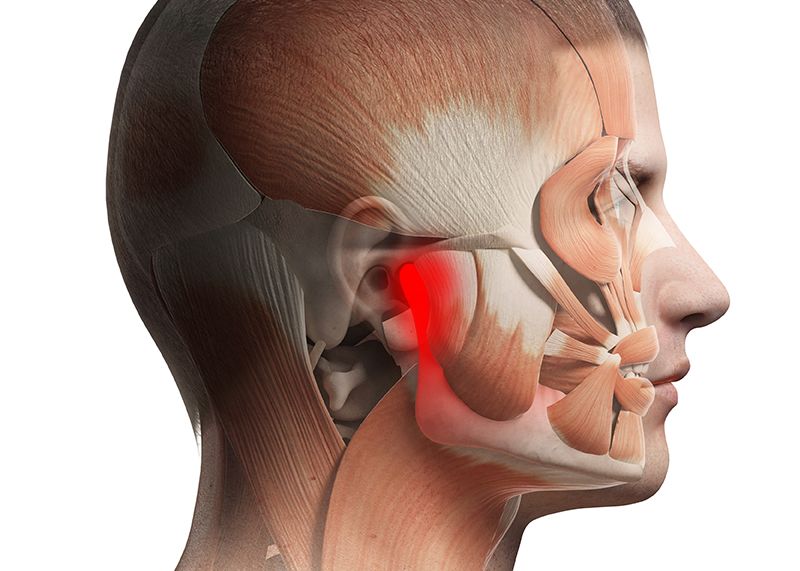TMJ disorder, also known as temporomandibular joint disorder, is a condition that affects the jaw joint and the surrounding muscles. It can cause pain, discomfort, and difficulty in jaw movement, significantly impacting a person’s quality of life. Understanding the causes of TMJ disorder is essential in seeking appropriate therapy for relief. This article will explore the causes of TMJ disorder and how therapy can help alleviate its symptoms.
Causes Of TMJ Disorder:
TMJ disorder can arise from various factors, often involving the complex interaction of the jaw joint, muscles, and surrounding structures. Here are some common causes:
Jaw Misalignment:
Misalignment of the jaw joint, known as malocclusion, can strain the TMJ excessively, leading to dysfunction and discomfort.
Teeth Grinding And Clenching:
Habitual teeth grinding (bruxism) and clenching can strain the jaw muscles and joints, contributing to TMJ disorder. This often occurs during sleep or periods of stress.
Trauma Or Injury:
Physical trauma to the jaw, head, or neck, such as a blow or accident, can damage the TMJ and trigger TMJ disorder symptoms.
Arthritis:
Various forms of arthritis, such as osteoarthritis and rheumatoid arthritis, can affect the TMJ, leading to inflammation, pain, and restricted jaw movement.
Stress And Tension:
Chronic stress and tension can cause muscle tension in the jaw area, leading to TMJ disorder symptoms.
Symptoms Of TMJ Disorder:
TMJ disorder can manifest in various ways, and its symptoms may vary from person to person. Common symptoms include:
Jaw pain or tenderness, particularly when chewing or speaking.
Clicking, popping, or grating sounds in the jaw joint.
Limited range of jaw movement or difficulty in fully opening or closing the mouth.
Headaches or migraines, often originating from jaw tension.
Earache or pain around the ears, sometimes accompanied by ringing in the ears (tinnitus).
Facial pain or discomfort, including pain in the temples or cheeks.
TMJ Therapy Options:
Therapy plays a crucial role in managing and alleviating TMJ disorder symptoms. Here are some common therapy options:
Occlusal Splints Or Mouthguards:
These custom-made oral appliances help align the jaw and reduce the effects of teeth grinding and clenching. They also provide cushioning and support to the TMJ.
Physical Therapy:
Specific exercises and stretches can help strengthen the jaw muscles, improve jaw mobility, and alleviate TMJ pain.
Medications:
Pain relievers, anti-inflammatories, and muscle relaxants may be prescribed to manage TMJ disorder symptoms. These medications can provide temporary relief during acute flare-ups.
Stress Management Techniques:
Techniques such as relaxation exercises, meditation, and stress reduction strategies can help alleviate TMJ disorder symptoms triggered by stress and tension.
Dental Treatments:
In some cases, orthodontic treatments or dental procedures may be recommended to correct jaw misalignment or bite issues contributing to TMJ disorder.
Lifestyle Modifications:
In addition to therapy options, certain lifestyle modifications can help manage TMJ disorder symptoms:
Avoiding hard or chewy foods that can strain the jaw.
Applying heat or cold packs to the jaw area reduces pain and inflammation.
Maintaining good posture to minimize strain on the jaw and neck muscles.
Practicing relaxation techniques and stress management to reduce jaw tension.
The Bottom Line
Understanding the causes of TMJ disorder is crucial in seeking appropriate therapy and relief from its symptoms. Whether the condition stems from jaw misalignment, teeth grinding, trauma, arthritis, or stress, various therapy options are available to alleviate pain, improve jaw function, and enhance the quality of life. If you experience TMJ disorder symptoms, consult a dental or medical professional who can diagnose properly and guide you toward the most suitable therapy approach. With the right treatment and lifestyle modifications, managing TMJ disorder effectively and regaining comfort in your jaw joint and muscles is possible.

